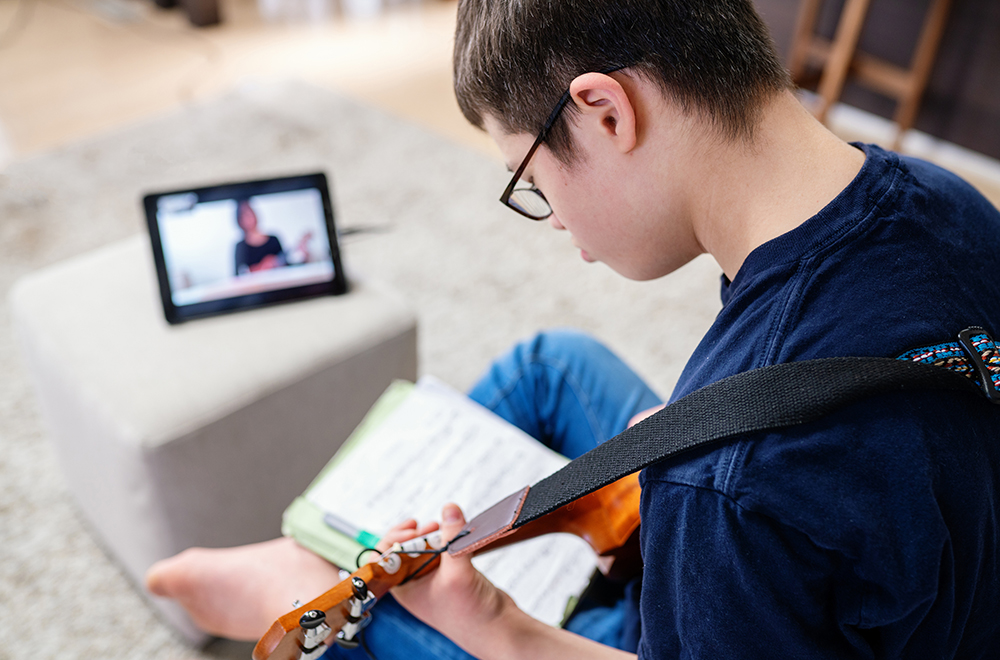The education changes made necessary by COVID-19 for students with disabilities paints a disappointing picture, according to a new survey conducted by Children and Young People with Disability Australia (CYDA).
The COVID-19 pandemic has shone a light on just how poorly some children and young people with disability are supported in their education before and during the pandemic. This spans all states and territories and all educational settings.
Key findings from the survey found significant reductions in the provision of usual supports for students with disability from education facilities, most notably supervision, social supports and individual support workers. And, despite the well-known inequities faced there was a lack of assertive and proactive support for students with disability, with 80 per cent of respondents reporting that responsibility for education shifted away from teachers and schools and onto parents.
While well-designed Individual Education Plans (IEPs) might not need to be changed to accommodate a pandemic, many families did not feel these were operating well before the pandemic and modifications and accommodations were not being made to support the shift to remote learning.
Over the longer term the only way to prevent these issues arising in future waves of the pandemic, or during other emergencies, is to genuinely implement inclusive education practices. However, if schools were to do one thing in the shift back to remote learning in Victoria (and other jurisdictions that might follow), it should be to provide social support to ensure children are engaged with their peers in productive ways.
When it comes to the NDIS, nearly half of respondents indicated that the child or young person’s need for NDIS funding to assist in accessing education had changed since the start of the pandemic, although just 5 per cent had requested a plan review and had it approved:
- Funding changes were needed for tutors, support workers, technology, therapies, personal protective equipment (PPE) and other forms of equipment
- Where parents had not requested changes to funding it was often related to not having the time and effort to navigate the plan review process, or thinking that the NDIS would not assist with educational support
- A number of parents reported redeploying support workers from personal care and into helping children engage in learning, with the risk that they would not have enough support worker hours left at the end of their plans. Others had requests for more funding turned down by the NDIA on the basis that education supports should be covered through mainstream services
- There was a lack of clarity about how the NDIS could be used to support remote learning
- Although many NDIS participants were able to use the NDIS funding in creative ways to help engage children and young people with disability in their learning this was not consistent or well communicated.
Other findings to emerge from the survey were the importance of making sure students with disability were socially connected to peers and the school was critical to this.
A number of parents and carers also commented that the pandemic period provided them with insight into the level their child was working at. This occasionally came as a surprise, as parents discovered that with adequate support their child could complete work at a much higher level than the school had recorded. For others this period illustrated how little progress their child had been making and the lack of support they were receiving from their school. Several commented that they were considering changing schools or home schooling their children as a result.
Although the shift to remote learning and the associated impacts of the pandemic have raised some new issues, several respondents indicated that the issues faced are more longstanding. Over the longer term the only way to prevent these issues arising in future waves of the pandemic, or during other emergencies, is to genuinely implement inclusive education practices.
The good news from this research is with careful planning and effort by education systems and educators, students with disability can thrive through the pandemic, including in remote learning. However, this report also shows that the deep educational inequity experienced by students with disability was exacerbated and further entrenched during the pandemic.
To access the full report go to: https://www.cyda.org.au/resources/details/172/not-even-remotely-fair-experiences-of-students-with-disability-during-covid-19

